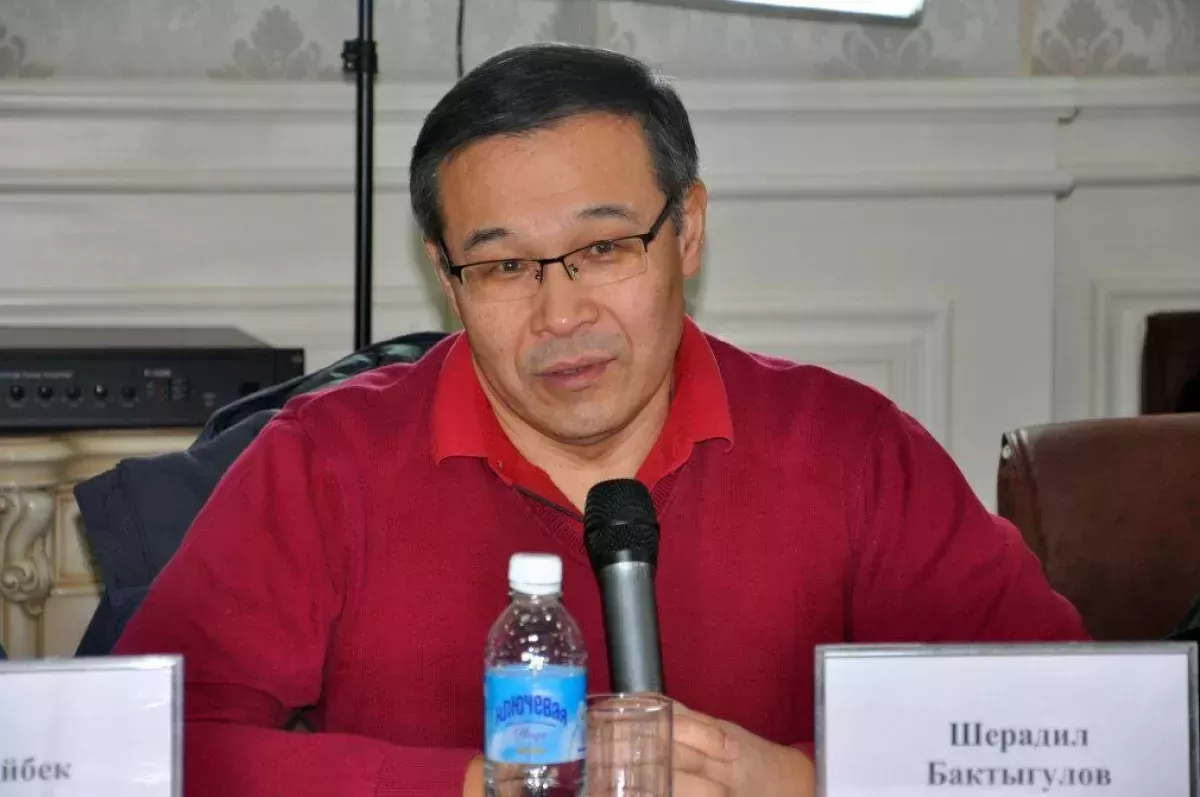"China-US: Conflict could erupt due to miscalculation" Expert opinions on Caliber.Az
US President Joe Biden has ordered military aid worth $571 million to be sent to Taiwan, according to the White House press service. The statement indicates that the authority to provide the aid has been transferred to US Secretary of State Antony Blinken. As part of the support, Taiwan will receive services from the US Department of Defense, including "military training and education."
Meanwhile, Chinese Foreign Ministry spokesperson Lin Jian stated at a briefing that the Abrams tanks supplied by the United States would not help Taiwan achieve independence. "Plans to achieve independence through force and foreign intervention are doomed to fail. China will firmly defend its national sovereignty, security, and territorial integrity," the diplomat told TASS.
Lin Jian emphasized that Beijing urges Washington to adhere to the "One China" principle and cease arming Taiwan, which supports forces advocating for the island's independence.
Earlier, it was reported that the first batch of 38 Abrams M1A2T tanks had arrived on the island. The sale of 108 Abrams M1A2T tanks to Taiwan for $2.2 billion was approved by the US State Department.
Additionally, it has been revealed that Taiwanese hackers, under US direction, are carrying out cyberattacks on China with the aim of discrediting it. This was reported by the Chinese newspaper Global Times. According to the publication, the cyber unit of Taiwan's "Ministry of Defense," ICEFC, closely collaborates with the United States and is responsible for conducting "cognitive warfare and public opinion warfare against the mainland." The newspaper also notes that, for these purposes, Taiwan's military is using the hacker group Anonymous 64.
According to Sheng Jiuyuan, director of the Taiwan Studies Center at Jiao Tong University, quoted by Global Times, such cooperation is not only military in nature but also reflects the increasingly close strategic partnership between the United States and the representatives of Taiwan's Democratic Progressive Party.
The newspaper reminds that earlier, Taiwan's "Ministry of Defense" signed a contract worth $63.5 million with the American Institute in Taiwan to upgrade information and communication systems. Additionally, it sent its own specialists to the United States to participate in "cyber warfare" competitions, according to the publication.
So, what is the de facto leadership of Taiwan aiming for with all these actions? It is clear that Beijing rightfully perceives these efforts as attempts to solidify the separatist ambitions of the island. Are such preparations by Taiwan not fraught with the risk of a new war in the region?
Foreign experts shared their thoughts on this with Caliber.Az.

According to Sheradil Baktygulov, director of the Institute of World Politics (Bishkek), it must be understood that the main beneficiaries of a potential conflict in the Taiwan Strait would be the United States, as all such actions are primarily aimed at strengthening the US dollar.
"We must remember that there are two main political forces in Taiwan – the Democratic Party and the Kuomintang (KMT). The KMT advocates for gradual rapprochement between Taiwan and mainland China, up to full reunification. The Democratic Party, on the other hand, supports so-called Taiwanese nationalism. Currently, the ruling party on the island is the Democratic Party.
In other words, the ebb and flow of tensions in the relations between Taiwan and mainland China are driven by which party is in power. When the Democratic Party is in control, there is overtly nationalist rhetoric aimed at distancing Taiwan from China. Conversely, when the Kuomintang is in power, rapprochement with mainland China begins," explains the political scientist.
In his opinion, the current actions of the outgoing U.S. administration, which are intensifying separatist rhetoric, should be viewed in the context of the agreements made between the U.S. and China when diplomatic relations were established.
"At that time, the U.S. assured that it would not provide political or military support to Taiwan. Yet, we see that these agreements are regularly violated by the U.S. A war in the Taiwan Strait is not needed by either Beijing or Taiwan. It must be understood that Taiwanese business is deeply intertwined with China's economy. The Taiwanese have invested heavily in both manufacturing and the financial sector in China. Likewise, significant financial investments have been made by mainland China into the island.
Therefore, a hypothetical armed conflict, let alone a short-term or medium-term, long-term war, would lead to the collapse of all Taiwanese banks. And this is something no one wants," said the director of the institute.
A common stereotype has emerged, suggesting that Taiwan is the leading producer of chips and that Beijing wants to seize this chip production, he noted.
"But this is sheer nonsense. The fact is, China itself has established semiconductor and chip production, and it is now ramping up the production of next-generation semiconductors and chips that were previously only available in Taiwan.
It is also important to understand that despite Washington's calls for semiconductor production to be moved to the U.S., Taipei is in no rush to do so, as this is a key advantage for Taiwan.
Furthermore, there is a certain level of racism towards Chinese people in the U.S., and many high-ranking Taiwanese engineers, managers, and even ordinary workers are reluctant to move to America to avoid their families becoming victims of such racism. Thus, while rhetoric may be one thing, its practical implementation is another.
It must be understood that the real issue lies not in the relationship between Taiwan and Beijing, but in the relationship between the U.S. and China. The U.S. has identified China's ‘sensitive spot’ and has been pressing on it for decades. The U.S. uses the Taiwan issue to exert pressure on China, aiming to portray China as a global villain in the media. However, this narrative does not withstand serious scrutiny. What we are witnessing is the U.S. escalating tensions to pursue its own interests," said Baktygulov.

American political analyst Andrew Korybko believes that, at this point, Taiwan aims to position itself as the central point of the U.S. "pivot (back) to Asia" under a potential Trump 2.0 administration.
"It doesn't want Japan, the Philippines, or South Korea to play that role. Taiwan believes that by doing everything possible to present itself as the most loyal regional ally of the U.S., it increases its chances of receiving U.S. support in the event of a war with China, thereby reducing the likelihood of being erased from the map as a political entity," the expert explains.
China, he says, as expected, is frustrated by these developments, but this is just the latest chapter in a long list of provocations that China has never responded to harshly in order to prevent future provocations.
"This is because China wants to reunite with Taiwan peacefully, and if that is not possible, it does not want to take any actions that could lead to military conflict unless it is fully confident of its victory, including over the U.S.
That time has not yet come, and therefore Beijing’s response remains limited to rhetoric. Some naval exercises may again be organized around the island, but it is unlikely that China will cross the line and start a war over this.
Taiwan also has no interest in starting a war with China, as it is already de facto independent, although only a few countries formally recognize this status," the political analyst explains.
In his view, the latest actions of the U.S. are aimed at preventing China from taking military action and escalating the situation, which helps the U.S. buy time and decide on its next steps.
"Nevertheless, this is certainly a provocative challenge to China, designed to make Beijing appear weak while it refrains from reacting harshly to any of it. There is also the risk that this will further exacerbate the security dilemma between China and the U.S. to the point where a conflict could erupt due to someone's miscalculation. This is because both China and Taiwan are on the edge, and additional Chinese naval exercises around the island or air patrols could lead to an exchange of fire (regardless of who initiates it), which could spiral out of control.
The U.S. does not want a direct war with China, at least not until they feel confident that the costs will not be unacceptable and that they will have the best chance of winning.
However, all three—Washington, Taipei, and Beijing—have contingency plans in case the conflict erupts due to some miscalculation. But the fog of war can derail even the most cautious plans," Korybko concludes.








